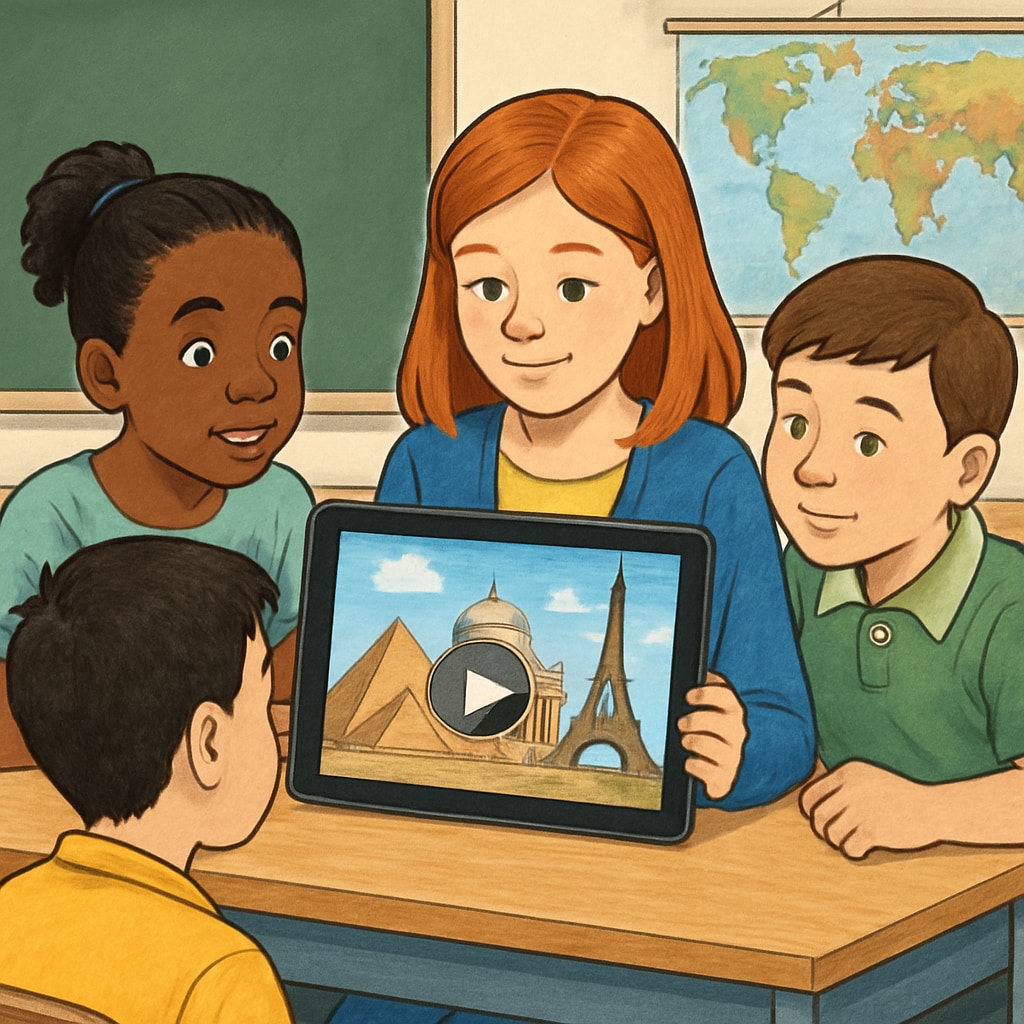In the age of digital media, platforms hosting travel short videos have become powerful tools influencing various aspects of life, including education. This article delves into the findings of a master’s thesis that uses survey responses to study the impact of travel short videos on K12 education. It examines how these videos reshape student learning habits and parental decision-making processes, while offering actionable insights for educators to harness this trend effectively.
How Travel Short Videos Influence K12 Learning Habits
Travel short videos often combine visual storytelling with engaging content, making them appealing to students in the K12 age group. These videos have the potential to enhance learning by offering immersive experiences that traditional textbooks cannot provide. For example, a short video exploring historical landmarks can bring history lessons to life, allowing students to visualize and connect with the subject matter.
Moreover, platforms such as TikTok, YouTube, and Instagram have become popular among younger audiences, fostering an environment where learning happens organically. Students are exposed to diverse cultures, languages, and geographical concepts through travel-focused content, enhancing their global awareness and critical thinking skills.

The Role of Travel Short Videos in Parental Education Decisions
Parents are increasingly using digital media, including travel short videos, to make informed decisions about their child’s education. These videos often showcase unique learning methods, extracurricular activities, and diverse schooling environments, helping parents identify opportunities that align with their educational goals for their children.
For instance, a video highlighting a school trip to a historic site or a nature reserve can influence a parent’s perception of the institution’s commitment to experiential learning. Additionally, parents may consult reviews and testimonials shared through short videos to evaluate the quality of educational programs or vacation learning opportunities.

Leveraging the Trend: Educators and Researchers Take Note
Educators can utilize travel short videos to enrich their teaching strategies. By integrating these videos into lesson plans, teachers can provide students with real-world examples that resonate with their interests and learning styles. For example, a geography teacher might use travel videos to explain climate zones, or a language teacher could showcase cultural traditions through short clips.
Researchers studying the impact of digital media on education might find value in analyzing survey responses related to travel short videos. These responses can shed light on how students and parents interact with this content, revealing trends that could shape future educational strategies.
For those conducting master’s thesis research, gathering survey responses is crucial. It provides quantitative and qualitative data to assess how travel short videos influence educational decisions and learning habits. Platforms like Google Forms or SurveyMonkey can streamline this data collection process.
Readability guidance: This article maintains short, focused paragraphs and utilizes lists to summarize key points. Active voice is prioritized to enhance clarity, and transition words are used to improve flow.
Conclusion: The Growing Impact of Travel Short Videos
Travel short videos are more than just entertaining content—they are becoming influential tools in shaping K12 learning and education decisions. This trend underscores the importance of understanding how digital media affects students, parents, and educators. By leveraging the insights from survey responses, researchers and educators can develop strategies to harness this influence effectively, ensuring that digital media contributes positively to the educational landscape.
As travel short videos continue to gain popularity, educators and researchers must remain proactive in exploring their potential. Whether through master’s thesis research or classroom implementation, these videos offer a unique opportunity to innovate and enhance K12 education in the digital era.


